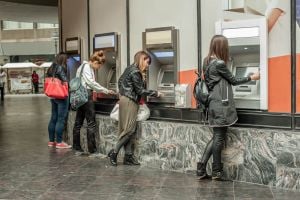Selling real estate in Brazil
Subscribe to the topic
Post new topic
I have a condo in Rio that I am going to sell and buy another one instead . I am US citizen and only have CPF and not RNE. Therefore I do not have brazillian bank account .
Where can I keep the funds until I find a substitute property, if I don’t have bank account ?
@detebari
There are a number of ways to keep the funds in Brazil, but all involve the participation of third parties, as far as I can see... and from overseas, it will be very difficult to achieve this, unless you have someone very well-known to you locally willing to hold the funds and that involves huge amount of risk on both sides.
Probably the only way to make the sale would be to make it a condition of sale that the buyers funds are sent to you in the US directly from a buyer. To achieve this you would need to find an English speaking and willing broker (and probably an attorney to write the contract), and also a buyer happy and able to comply.
Banco Rendimento allows foreigners to open up bank accounts. They will still due a lot of diligence on you but you don't need an RNE.
Banco Rendimento allows foreigners to open up bank accounts. They will still due a lot of diligence on you but you don't need an RNE.
-@Daring12
Have you actually done that as a foreigner yourself, without an RNE? That would be great news.
Their website does mention requiring a RG or RNE, but also mentions passport - so maybe this is a work around? They also require the usual proof of address, etc...
I have only worked with them for funds coming into Brazil, as a conduit between a buyer's foreign account and the seller's account here in Brazil, so I have never known anyone to actually open an account with them.
If this is true, it could be a first for us, and great for people who have holiday homes here. Previously it has happened, by only by "clerical error", when the old US tourist visa in a passport (granted for 10 years), was mistaken as a permanent visa with a validity of 10 years!
@Peter Itamaraca
Thanks but Im not planning to take the money to US. Want to invest in another real estate in brazil.
@Daring12
I give them a try and report back.
What you want to do is the equivalent of a 1036 exchange. So that you can save on Capital Gains Tax. Just so you know, there is such a thing here.
A CPF will suffice to get you a banking account setup. I would use traditional banks ( Bradesco/Banco do Brasil, Caixa/ Itau/ Santander/ Sicredi ). Less of a risk if a bank goes under.
That is exactly what I want to do but If a forgeiner does not have permanent residency RNE, can nit open babk account in Brazil and that is the problem.
There is a will, there is a way.
i should also include Banco Real in this list. Their entry requirements are a bit steeper, but they love foreigners. So much so, they bought the most expensive building in London's City. All that Russian money and they not getting any of it. ...
As a last resort, you can hire a proxy, or better yet, setup a firm where all the transactions will take place. A CNPJ goes a lot farther in getting you a (business ) banking account. Give it a run through your locals.
Thanks . I have to find out if foreigners can open a business with CNPJ.
@Daring12
I took a quick look at their site. They do have an option to view in English however, it’s just a google type translation which doesn’t work well for banking terms.
I looked at their fee schedule which in my opinion looks a bit excessive, but maybe that’s normal for Brazilian banks. Someone with more knowledge than me would have to chime in with info with respect to their fee schedule. However, they seem to be trying to get gringoes to try their services.
To whomever dips their toe in this particular water, Good luck.
I have a condo in Rio that I am going to sell and buy another one instead . I am US citizen and only have CPF and not RNE. Therefore I do not have brazillian bank account .
Where can I keep the funds until I find a substitute property, if I don’t have bank account ?
-@detebari
You need a confirmed and proven place of residence, and your CPF. Check out MEI Guidelines. It's all done online. You are on the hook for a monthly tax, about R$ 60
Thanks . I have to find out if foreigners can open a business with CNPJ.
-@detebari
What you have been told is a bit misleading. As a foreigner you certainly can create a company here, and invest in it, so long as you have a Brazilian citizen or permanent resident to administer it - meaning they have to open the bank account in the company name (not yours), and will have full access to, and control over, your funds. Very risky unless you are here and in total control yourself - and you will have no personal access to those funds until you have a permanent visa.
Companies with a CNPJ here are can also quite expensive to run, if you are not here. You must have (and pay for) an administrator, by law, an accountant, and probably an attorney (certainly in the early stages), and that all adds up... Not an option, I think, in your case.
What you want to do is the equivalent of a 1036 exchange. So that you can save on Capital Gains Tax. Just so you know, there is such a thing here.
A CPF will suffice to get you a banking account setup. I would use traditional banks ( Bradesco/Banco do Brasil, Caixa/ Itau/ Santander/ Sicredi ). Less of a risk if a bank goes under.
-@sprealestatebroker
For the avoidance of any doubt for the OP, a CPF will NOT, I repeat, NOT, get you a bank account in any of the banks mentioned above, Do not waste your time trying.
No idea what a 1036 exchange is, but Capital Gains Tax (CGT) does exist in Brazil at a rate of 15%. However you do not need to pay it if the funds resulting from a sale are re-invested into another property within 6 months. I think this is the intention here...
Furthermore I have seen many, many sales and have only known one couple pay CGT, and they volunteered to pay it. There are ways around it, including registering the funds with the Central Bank of Brasil (not the same as the Bank or Brasil), when first buying a property, and that portion of the funds resulting from the sale is excluded from CGT.
@sprealestatebroker - are you a licensed real estate broker here in Sao Paulo, Brazil - as your username suggests? Several times I have noticed you give wrong or totally misleading information, and I (and others) are starting to ask this question. If you are, what is your CRECI number? This could also be good publicity for you...
Again, Peter Itamaraca with an axe to grind...
To @Daring12
If you scour tax ID databases, as I have done, foreign proprietors are inserted as foreign partners in a company ( "Socio residente no exterior" ) , whose main managed asset is the real estate property. And then, managing partners,who might or not have equity in the underlying asset, are also named ( aka "socio-administrador " ). Partners with equity but no material participation on the management of the asset are simply , "Socio".
And to get issued a CPF ID, it may or not may, need an accountant,depending on its legal status as far as company's size, number of employees, etc. The simplest form is a MEI, which does not require an accountant, and can be done entirely online. What you can do, and I've done this a long time ago to scantly remember anything at all, , is to check the requirement list to get yourself a MEI-CNPJ.
For a single apartment unit, which might be your primary or secondary residence, it might be an overkil at first. You can always cease your CNPJ, it's done at all times.
Generating the CNPJ ID comes first before you sell the first property, and there is an added cost to transfer the property to be sold from your personal name into the company's name.
An added benefit from owning a MEI CPF is the taxation bracket, on incomes derived either from your activity or income producing asset.
My CRECI ID is only revealed to would be clients, on engagement, and I do not have any here, nor I plan to do so. I am not entertaining retail clients.
@sprealestatebroker
No axes here! Just a desire to help others by offering advice from 17 years of my personal experience living, working and running a company in Brazil...
FYI a non-resident foreigner cannot open an MEI. A foreigner must have a permanent visa in order to open an MEI, or they must have a resident or Brazilian act as administrator. Which makes this proposal doubly ineffective for the purposes of this thread, as the costs and risks would far outweigh any benefits.
I have a condo in Rio that I am going to sell and buy another one instead . I am US citizen and only have CPF and not RNE. Therefore I do not have brazillian bank account .
Where can I keep the funds until I find a substitute property, if I don’t have bank account ?
-@detebari
Here's the link that might answer all of your questions....
Just plug on Google translate for a coarse translation on opening a business Tax ID.
https://www.contabilizei.com.br/contabi … VvEALw_wcB
Yes, to get issued a CNPJ, MEI, it does require an RNE ID, for what the text reads like. It would be nice, and save you money. So you change your plans.
So , in the end, you might need to incorporate using a proxy to represent you, thus forming an LTDA company. Same as I outlined before. And keep an accountant for company setup. Sometimes a property management company might be ok with this
As far as your Upgrade or Downgrade purchase, unless you have something set under your sights, you might just want to get your RNE first and then move on with your endeavors.
You can get an RNE issued as a temporary visa, so the hurdle might not be as insurmountable as you may think. Imigration might not be my forte, so seek help on this.,
The only time I might be pressed for time to buy any soon , it is if you have a "ground floor opportunity". Concerning Rio, right now, It's Historic Downtown, which is primed for gentrification. The noise is growing,so you might want to look into this.
Now, all of this paperwork represent added costs and is time consuming. So make a lemonade out of lemons. This is as close as a barrier to entry as it gets. Take advantage of it.
To recoup your costs, I would take every knowledge you gain from this, as painful and costly it might be, and turn into something that might become profitable. For instance, to form a Real Estate Syndication entity, and bring in other investors.
And do yourself a big favor.. Stay clear from underdeveloped coastal communities or river basin areas A lot of monkey business goes there. You risk yourself getting fleeced, not to mention being caught into situations you do not want to be involved in.
https://www.aljazeera.com/news/2023/2/2 … aulo-state
https://www.theguardian.com/world/2023/ … aulo-state
The above happened as local indigenous fishing communities ( aka Caiçaras ) got pushed out to the hills and at the hill bottom, so they rich folk could build their bungalows to their likeness over the narrow coastline flat land strip. These displaced folks started to build on the inclines, therefore stripping the land bare, and all it took was a torrential rain faill to bring mud through the hill.
I for one, knew Sao Sebastiao and Ilhabela. Definitely land grabbing ( Grilagem ), and issuance of illegal environmental permits took place at the bottom of the hill through the narrow coastline.
Now, Imagine yourself having Environmental Authorities sifting through land records to find illegal transactions, bribed officials. You do not want your name in that.
There a gargantual Mall on Mooca, by Avenida Paes de Barros, in Sao Paulo, that can't be occupied, because the owner-developer cut corners and bribed city officials on illegal building standards. It's been boarded up well over 20 years already. The owner, die of an heart attack, and the underwriting bank in the hook, can't move the property .
This ain't the 1970's, a lot of how business is done changed in Brazil.
Best of luck on your endeavors.
What you want to do is the equivalent of a 1036 exchange.
-@sprealestatebroker
@sprealestatebroker, are you referring to the US 1031-exchange, where the proceeds of the profits on a sale does not gets taxed if the new purchase is about the same price as the sale?
In essence, the sale of this real estate property is replaced with another one of equivalent or higher value - hence no real taxable profits have been realized. If I remember correctly the rules of the 1031 exchange includes setting up of a temporary trust-like account to hold the proceeds of the sale which will be used to purchase the new property. And the exchange must be completed within 60 days - which means that you have to buy and sell at almost the same time.
Is there an equivalent process in Brazil? How can I find more info about that?
Thank you.
I am waiting for them to respond.
@detebari
Now that we have debunked the 'open a company' concept, this is probably going to be your best bet.
I did a quick research, and it does appear possible, although there are some restrictions and costs to pay.
Good luck and please let us know how it goes.
What you want to do is the equivalent of a 1036 exchange. -@sprealestatebroker
@sprealestatebroker, are you referring to the US 1031-exchange, where the proceeds of the profits on a sale does not gets taxed if the new purchase is about the same price as the sale?
In essence, the sale of this real estate property is replaced with another one of equivalent or higher value - hence no real taxable profits have been realized. If I remember correctly the rules of the 1031 exchange includes setting up of a temporary trust-like account to hold the proceeds of the sale which will be used to purchase the new property. And the exchange must be completed within 60 days - which means that you have to buy and sell at almost the same time.
Is there an equivalent process in Brazil? How can I find more info about that?
Thank you.
-@Pablo888
Yes, you are correct.
IRS 1031 tax deferred exchange. We have a similar situation in Brazil.
There is a reason there are a lot of foreign owned properties through proxies. Because it works as a loophole.And the folks involved in it make a decent fat living, btw.
Now, if you were to purchase an apartment unit, it might be an overkill to maintain a company in the books just to justify your purchase.. Bookepping expenses, turning personal property into company property....
Yet,, if you own the property through a legally registered business, then you save on taxes ( assuming it gets rented out ), as a company's income is taxed at a lower rate than personal income. All your declared income is going through the company.
The most important of all is, the ownership record is not as transparent. Not impossible to be found, but a whole lot harder. It takes a trained person for due diligence.
Most of registered ownerships by foreign entities I stumbled upon, often associated wiht high end apartment units in Sao Paulo, are such that ownership goes through a partnership, represented by have an in loco proxy entity , a person ( Socio Administrador/ Administrative Partner ), and the foreign entity is not through an individual, but rather a foreign company.
I've seen registered deeds through companies from Italy, Caribbean countries, every seldom through an American Company.
Now,, your predicament might be to buy, say, a larger or smaller residential unit, I so assume. What I suggested above is a bit of an overkill.
I would suggest to get your legal residency to be formalized to then go through the process of selling and purchasing real estate. Unless you are in some pickle, this is the best way to go about your affairs.
As for going after these Mickey Mouse Banks out there, I would stay clear from them.. If is not through the established ones such Bradesco, Itau, Banco do Brasil, Caixa Economica, Santander, Sicoob/Sicredi, Rendimento S.A. Safra, Banco BTG Pactual S.A., Banco Daycoval S.A., Regional banks ( CREFISUL, BMG Banco da Amazônia S.A. ), then you are taking way too many chances.
You can look through Febraban's sponsored site to locate your chartered bank and make your inquiries. ( https://www.buscabanco.org.br/ ). You will specify State and City, and a large list will pop up.
I have a condo in Rio that I am going to sell and buy another one instead . I am US citizen and only have CPF and not RNE. Therefore I do not have brazillian bank account .
Where can I keep the funds until I find a substitute property, if I don’t have bank account ?
-@detebari
You can make this process with less cash being exchanged, which makes the point of having a bank almost redundant. And you do not need to open a business account.
In times of recession, many Brazilians will consider to trade up or trade down their properties. So join the party then.
The way to make this work is as follows....
1.You will need to have your property appraised. if it is an apartment, then, you no longer need someone with an Civil Engineering Degree for this as it was done in the past. Nowadays, a Licensed Broker with a CNAI ID number will suffice.
Most appraisals at the level of apartment units, are elaborated with comps, and some straight math, standardized through the ABNT rules set. Most issued appraisals are in fact boilerplates.
Expect to pay around R$ 3,000 for a one time quote with supporting documentation ( Laudo ).
2.Then enlist one broker ( and only one ), that might specialize in the region you seek out to move onto.. You can set the commission rate at 6% between two transactions if all possible. If the listing broker gets at listing on his/her own, then he/she will earn the 6%. If there is a co-broke, then he/she earns 3%. It is money in the pocket, anways.
You might want to then consider a broker not affiliated with any Real Estate Office ( Autonomo ), as your exclusive seller broker. When working under a Real Estate Office, they have less flexibility to negotiate rates.
3.Drill down the specs on what you seek on your next home, but don't overdo. Stick with fundamentals only, leave that "this home is me" outside the list. Means, compromise. here are the items you ought to focus on.
a.Floor Size. Establish a range, rather than an exact figure.
b.Always stick with North Facing units ( morning sunlight ).
c.Beachfronts tend to be more expensive than median numbers for a neighborhood as a whole. Take that into account.
d. Condo Association Dues and the breakdown into expenditures are a must see. Make sure you go through that to spot excesses.
e.Groundskeeping and repairs are of paramount importance. Be mindful of such, and be an observant during visits . OIverlooked maintenance has a way to become a time exploding bomb on your monthly dues.
f.The more ammenities the costlier it will become over the long turn. Unless you have kids around, skip those gated megaplex condos with swimming pools on Barra da Tijuca / Sao Conrado/ Recreio dos Bandeirantes. Stick with your Leblon/Copacabana/Ipanema/Centro/Botafogo/Santa Tereza places.
A little further on neighborhoods, the Area between Leblon and Jardim Botanico, close to the Corcovado route, is by far the least hot in al city. The presence of the Botanic Gardens creates a huge cooling effect.
g.Eschew the dream home, and focus on homes you can make improvements on your own. Unit structural design, size of window frames, layout are important. Get a word on where water columns and supporting pillars are. A soundly designed floor plan is key to make a good living place.
4.When looking into the targeted property, make a point to expect an appraisal to be made in behalf of that property. While appraisals are only an estimated median value, they set the stage for a fair negotiation between the parties. The purpose of appraisals is not to exact a value, but rather to establish a baseline so that negotiations stay fair.
This might take a little longer, but in the end, it resolves your quandary about where to stash money while you go for the desired home.
The process is doable, it might take a little longer, and the boilerplate paperwork for this is pretty much out there.
b.Always stick with North Facing units ( morning sunlight ).
-@sprealestatebroker
Just a typo, I am sure, but I think it has been established for quite a long time that the sun rises in the east, and sets in the west.
In fact the message is quite important. Always try to find a home that faces east (nascente) not west (poente), as the morning sun is a lot less hot than the afternoon sun. I guess it does not make a lot of difference if you are in the shadow of lots of high rise apartment buildings, but nascente homes tend to be more expensive as a result of being less uncomfortable in the afternoons.
I recall being in Foz de Iguazú one time, and being bemused at all the vendors outside hotels, etc, selling overcoats and jackets to the tourists. Then the sun went down, and I discovered why - it became very cold...! So perhaps in the very south of Brazil there is an advantage to look north all day - bit like facing south in the northern hemisphere...?
b.Always stick with North Facing units ( morning sunlight ). -@sprealestatebroker
advantage to look north all day - bit like facing south in the northern hemisphere...? -@Peter Itamaraca
@sprealestatebroker and @Peter Itamaraca, I think that the orientation of the light entry throughout the day is important.
In California, my house faces south with kitchen on the East and bedrooms on the West. I have a couple of houses that face East. One of the houses has a big tree in the front yard, and I don't feel the morning heat too much. The other does not.
For the one which does not have a tree in front, I found that the heat and glare of the rising sun too much - even when entering the living room. I had to put heavy shades in the morning to cut the glare - and this does me no good in the afternoon as the sun would have moved to the back of the house with less light in the front.
For my house facing South, I found that having several sun-roof openings is sufficient to keep light in while ensuring that the East and West facing rooms get the intended heat exposures.
Now, with the reasoning above, in the Southern Hemisphere, would it be much better to have a house facing North?
Sorry for probing too much into the reason - but this is something that I consider as part of a house purchase...
Now, with the reasoning above, in the Southern Hemisphere, would it be much better to have a house facing North?
Sorry for probing too much into the reason - but this is something that I consider as part of a house purchase...
-@Pablo888
A small part of Brazil is actually in the northern hemisphere above the equator, and the vast majority is tropical, so the sun passes virtually overhead for a large part of Brazil. Perhaps, as I mentioned, in the very south, or in more southern parts of S America there may be some advantage to facing north.
Of course it is different in Sao Paulo, or other inland areas, but otherwise the key is to face east, and be as close to the beach as possible to benefit from the ocean breezes.
02/19/24 Now, with the reasoning above, in the Southern Hemisphere, would it be much better to have a house facing North? -@Pablo888
I think that you're right about opposite orientations in what I think of as "mirror-image latitudes". For example, Pensacola, Florida is at about 30°N, and Porto Alegre, Rio Grande do Sul is at about 30° S. In Porto Alegre I'd probably look for a north-facing house, just as in Pensacola I'd be more interested in a south-facing house. The sunshine in the high latitudes is always going to be coming from the direction of the Equator.
Peter Itamaraca is also right in saying that north of São Paulo (which straddles the Tropic of Capricorn) the rest of Brazil is in the Tropics and the farther north you go, the less relevant North-South becomes. In Manaus where I live, we're only 3° south of the Equator; in Itamaracá where Peter lives, it's only 7°. At those latitudes, the sun is directly overhead all year, and ventilation becomes much more important than North-South orientation. Our building, like a lot of buildings in Manaus, has a blank north wall and most of the windows on the south wall, to provide shade to the living areas. There's only one window in the north wall which provides a steady breeze most of the day, since our weather usually comes from the north and the east.
I'll take some issue with Peter on East-West orientation. I think that, especially this far North, it depends on weather and view. On the beach, I'd want an eastern exposure, too. Here, all of our bedrooms look west, and I wouldn't have it any other way. Since our weather does come from the east, sunrise here is often obscured by clouds (not that I'm usually up at 6 AM to see it!), but we have dramatic sunsets over the Rio Negro practically every day. Our windows are also sheltered from the rain compared to our neighbors on the east side, and it rains a lot here. Among the first things we did when we bought this apartment was to install ceiling fans in all rooms, and sliding sun shades in all the western windows. On sunny days we draw the shades between Noon and 1 PM and open them for the sunset, and the heat is not oppressive.
@abthree
It is interesting the differences in different areas of Brazil.
On the island of Itamaracá obviously the view is over the beaches and out to sea, so east is the preference for everyone here. And it is from this direction that the breezes always come.
A good test is to walk on the beach during the day, then move inland a block and continue in the same direction - but with buildings blocking the breezes. Good test for you to do in JP, Al, in a couple of weeks time...!
02/19/24 @abthree A good test is to walk on the beach during the day, then move inland a block and continue in the same direction - but with buildings blocking the breezes. Good test for you to do in JP, Al, in a couple of weeks time...!
@Peter Itamaraca
No worries: that's part of our plan on all these trips. 😉
Articles to help you in your expat project in Brazil
 Banking in Brazil
Banking in BrazilBureaucracy is deeply rooted in Brazil, and this is never more evident than when dealing with banks. Be aware that ...
 Opening a Brazilian bank account
Opening a Brazilian bank accountBank Accounts – The Brazilian banking system is one of the most complex and bureaucratic in the civilized ...
 Using phones in Brazil
Using phones in BrazilIt's much easier these days to get a cell phone in Brazil, and phones and calling plans are inexpensive. ...
 Accommodation in Brasilia
Accommodation in BrasiliaBrasilia, the country's federal capital, is home to many highly-paid government employees and foreign ...
 Dating in Brazil
Dating in BrazilIf you're single and ready to mingle, then you might want to try your hand at dating after you've settled ...
 Marriage in Brazil
Marriage in BrazilBrazil can be a romantic country, and you may want to marry here. Perhaps you even want to remain in Brazil ...
 Leisure activities in Brazil
Leisure activities in BrazilHave you always dreamed of dancing to the rhythm of a Brazilian carnival? Do you wish to enjoy the sand and the ...
 Accommodation in Rio de Janeiro
Accommodation in Rio de JaneiroWith an official population of about seven million people, and almost twice that number in the metro area, Rio de ...
Find more topics on the Brazil forum



